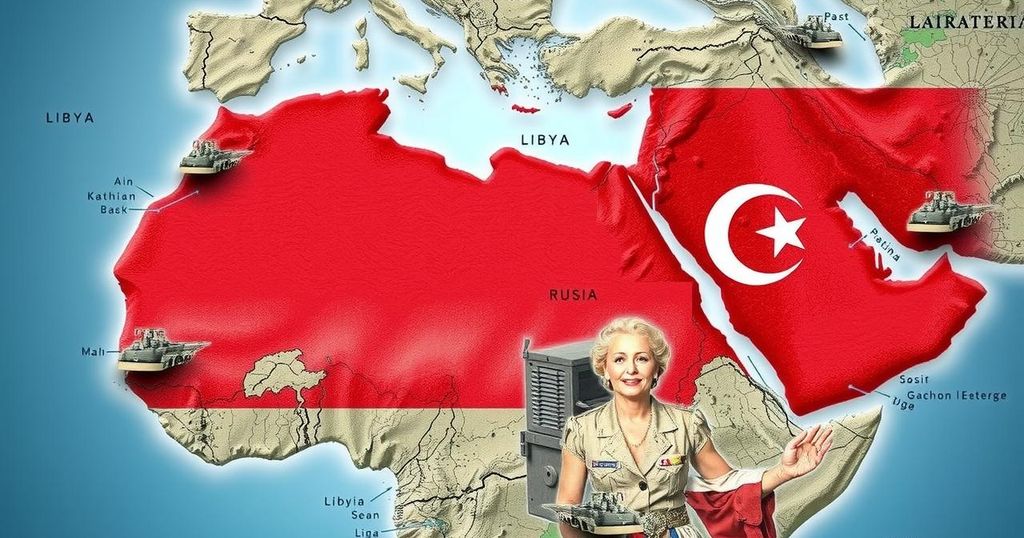Russia Shifts Focus from Syria to Libya Amid Changing Geopolitical Landscape

Following the upheaval of Bashar al-Assad in Syria, Russia is pivoting towards Libya to bolster its strategic influence in Africa. As Russian military resources are redirected to support Khalifa Haftar, the complexities of the Libyan political landscape present challenges distinct from those once managed in Syria. This shift reflects Russia’s continued endeavor to expand its regional power while navigating competing international interests.
The recent shift in geopolitical dynamics following the fall of Syrian leader Bashar al-Assad has compelled Russia to reevaluate its strategic interests in the region, specifically focusing on Libya as a potential new base for exerting influence. With existing military assets in Syria, including a port and air base vital for operations across the Mediterranean and Africa, Russia’s hold on these positions has been jeopardized by Assad’s replacement. Now, Moscow is redirecting its resources toward Libya, where Russian mercenaries are already active in supporting Khalifa Haftar against the Tripoli-based Government of National Unity, which enjoys UN recognition and Turkish support.
The Russian military presence in Libya has been increasing, with reports indicating significant troop deployments and military resource transfers from Syria. Notably, Russian radars and advanced defense systems such as S-300 and S-400 batteries have been redirected to Libya. Analysts suggest this transition is not merely a replacement of proxies but part of a broader strategy to establish and maintain a strategic foothold in Africa, similar to what was achieved in Syria.
Experts underscore that Haftar’s leadership provides Russia a mechanism to challenge Western interests and exploit Libya’s fragmented political landscape. This situation raises alarms among Western nations, particularly the United States, which has attempted to dissuade Haftar from solidifying Russian military installations in the country. Comparisons between the operational environment in Syria and Libya highlight significant challenges for Russia, as Libya’s complexities and visibility of foreign military activity present a stark contrast to the previously unmonitored environment in Syria.
Ultimately, while Russia seeks to reinforce its influence in Libya, a careful strategy must be employed to manage existing alliances and ensure alternatives are available should circumstances change. The situation underscores the delicate balance of power in a historically contested region, marking a new chapter in Russia’s efforts to extend its geopolitical reach.
This article focuses on Russia’s strategic realignment towards Libya following the destabilization of its operations in Syria after the fall of Bashar al-Assad. The withdrawal of Russian authority in Syria has led to concerns regarding the sustainability of its military influences in the Mediterranean and its broader ambitions across Africa. Underpinning this analysis is the geopolitical significance of Libya, particularly in relation to Russian mercenaries collaborating with local forces against rival factions. This transition highlights the contested political environment within Libya and the challenges Russia faces amid other international players’ interests in the country.
In summary, Russia’s strategic interests in the Mediterranean and Africa are evolving due to the leadership changes in Syria, prompting a shift towards Libya. This transition involves significant military deployments and resource movements as Russia seeks to establish a new foothold amidst regional complexities and competing international interests. While potential exists for ongoing influence in Libya, the challenges of visibility and local dynamics necessitate a careful, well-calibrated approach to maintain Russian objectives in the region.
Original Source: thedefensepost.com








